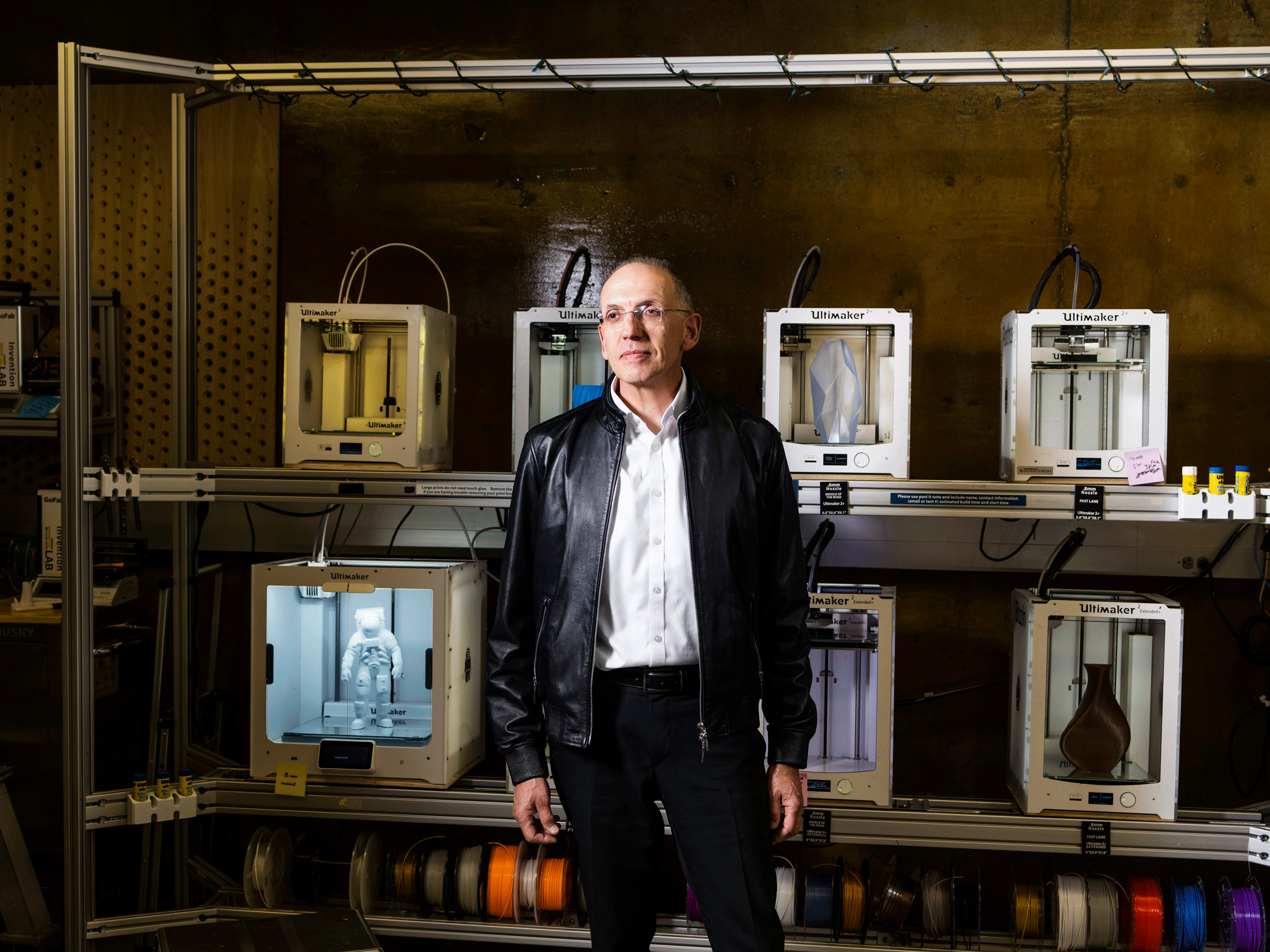Energy-Saving AI Is Coming for Your Office Thermostat - Hand Over the Controls to AI

THE FOUNDER OF modern Singapore, Lee Kuan Yew, once credited his nation's phenomenal economic growth to two factors: multiethnic tolerance and AC. “Air-conditioning was a most important invention for us,” he told an interviewer in 2009. “It changed the nature of civilization by making development possible in the tropics.”
Today the tropics are projected to house around half of the world's population by 2050, and burgeoning cities there often look to Singapore as a model. Some leaders in the island nation realize that this vast equatorial building boom poses certain risks: If AC systems hum all day long, cooling half-used rooms, that's a recipe for climate disaster. Which is why Singapore has enlisted the help of Costas Spanos, a wiry, intense electrical engineering and computer science professor at UC Berkeley who thinks he can cut office energy use by half—with the help of artificial intelligence.
Recently, the Singaporean government offered Spanos a floor in an office building to renovate. After he finished in January, workers returned to an unassuming new interior evoking the aesthetics of a hip budget airline. The room had been packed with tiny sensors detecting humidity, light, temperature, and CO2 concentration; Spanos had also devised a way to use Wi-Fi to triangulate people's locations by detecting their phones as they move through space. The theory: Armed with that anonymized data, the system would learn the workers' movements, schedules, and preferences and tweak their environment to suit.
If the workers got too hot or too cold, they could tap an app to say so. The AI would adapt, creating microclimates to reflect their feedback. But in time, Spanos expected, the workers wouldn't bother. His goal is to make the system forgettable. Lights will turn on as workers come and go; screens will flicker to life as they settle at their desks. Then the system will nudge for even more energy savings. The lights might get a bit dimmer, the room a little warmer, trying to fly under the radar of the workers' awareness.
Last year, a group of AI luminaries issued a report about how their field could forestall climate doom. The options were grand but mostly theoretical. They described how intelligent algorithms would pinpoint materials for next-generation batteries or model how seeded clouds reflect sunlight.
By comparison, a proposal to automate lights and AC with deep learning looks rather quaint. But there are huge efficiency gains to be had from how we use indoor spaces—provided we don't rely on humans to turn out the lights. “We can try teaching people to change their behaviors,” Spanos says. “But I don't think that's going to be effective. You're just going to have to automate around it.”
To be sure, sensors already help overcome our lapses. The lights at work come on via motion detector; the Nest cools the house while you drive home. But Spanos' models strain at a core tension: using less energy while still responding to people's wildly diverse inner thermostats. Individuals fiercely guard their preferences, says Jeni Cross, a sociologist at Colorado State University. “You'll always have unsatisfied people jacking with the system.” She's heard of AC running full blast in winter because personal space heaters had befuddled a thermostat.
In his research, Spanos ran simulations to game out how all the movements and preferences of workers would interact. What if my ideal fan settings freeze my neighbors? The AI tries to broker a compromise. “It's impossible to satisfy everyone,” Spanos admits. But maybe with enough time and data, he can come close. (He expects initial results from his trial in Singapore later this year.)
If Spanos succeeds, would we want to work in this kind of panopticon, tracked by Wi-Fi? “We're still learning about how far you go,” says Lee Chuan Seng, board chair of Singapore's environmental agency. Data protections are a must, he says—but so are experiments like this one, which could ultimately inform commercial technology exported across the tropics. Lee gets up to adjust the AC and returns with a thought that might be controversial: In the face of climate change, maybe giving up some individual control will become a necessary concession.
